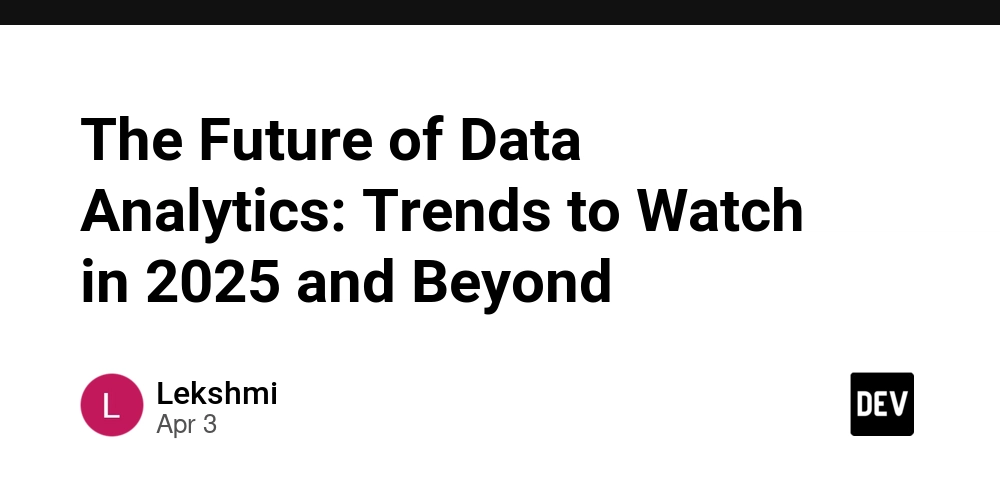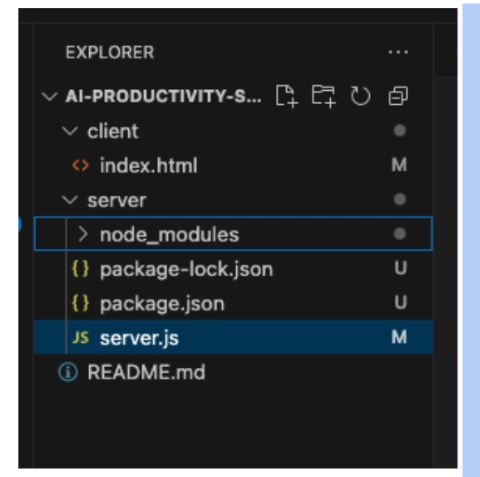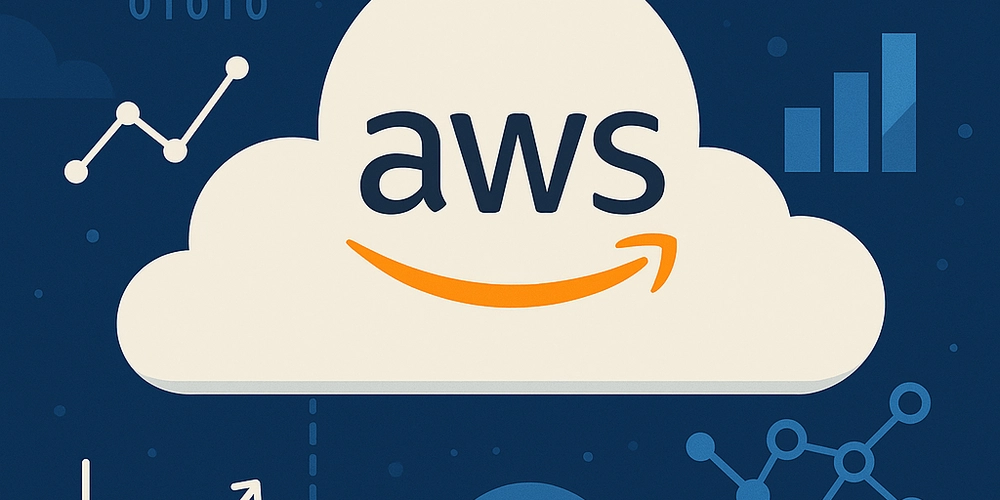The Future of Data Analytics: Trends to Watch in 2025 and Beyond
The field of data analytics has evolved rapidly over the past decade, and its importance continues to grow across various industries. In 2025 and beyond, data analytics will play an even more integral role in shaping decision-making, driving business strategies, and uncovering new opportunities. As companies increasingly rely on data to fuel their growth, understanding the emerging trends in data analytics is essential for anyone looking to stay ahead in this dynamic field. Whether you're a professional or a student aspiring to enter the field, it's crucial to be aware of these trends. 1. Artificial Intelligence and Machine Learning Integration In the coming years, artificial intelligence (AI) and machine learning (ML) will become even more deeply integrated into data analytics processes. These technologies have already begun transforming how businesses interpret and act on data, but their capabilities are expected to expand exponentially. AI and ML algorithms will automate data analysis, uncover patterns in real-time, and deliver predictive insights with unprecedented accuracy. For professionals in data analytics, mastering AI and ML will become essential. Understanding how to train and deploy machine learning models, as well as how to use AI for data preprocessing and analysis, will be key differentiators in the field. To get ahead of this trend, enrolling in a course offered by the best data analytics institute in Kochi could provide you with the expertise you need in AI-powered analytics. 2. Data Privacy and Ethical Considerations As more data is collected and analyzed, the issue of data privacy becomes even more critical. With the introduction of stricter regulations, such as the General Data Protection Regulation (GDPR) in Europe and the California Consumer Privacy Act (CCPA), businesses must adhere to rigorous standards when handling customer data. In the future, data analytics will not only focus on extracting insights but also on ensuring compliance with privacy laws and addressing ethical concerns. For data analysts, the future will require a solid understanding of data governance, privacy laws, and ethical standards. The best data analytics institute in Kochi offers courses that cover data ethics, enabling professionals to balance powerful analytics with the responsibility of protecting consumer data. 3. Augmented Analytics Augmented analytics refers to the use of AI, machine learning, and natural language processing to automate data preparation, data mining, and insight generation. By enhancing human decision-making with intelligent data discovery and analysis, augmented analytics will significantly reduce the need for manual intervention and empower non-technical users to leverage complex data sets. This trend is expected to democratize data analytics, making it accessible to a wider audience within organizations. Data professionals will need to develop skills to not only use augmented analytics tools but also interpret and communicate the results in ways that are actionable for their teams. 4. Data-as-a-Service (DaaS) Data-as-a-Service (DaaS) is an emerging trend where organizations can access external data sources on-demand, enabling them to make better decisions without having to build and maintain their own data infrastructure. DaaS will continue to grow, especially as businesses look for more cost-effective and scalable ways to acquire high-quality data. For data analysts, this trend means developing skills in working with cloud platforms and third-party data services. Understanding how to integrate external data sources into internal analytics workflows will be a valuable skill moving forward. 5. Real-Time Data Analytics The demand for real-time data analytics is growing rapidly, especially as businesses seek to react quickly to market changes, customer behaviors, and operational issues. Real-time analytics will enable organizations to make more immediate and informed decisions, providing a competitive edge in industries like finance, healthcare, and retail. As this trend continues, professionals in data analytics will need to be familiar with real-time data processing technologies such as Apache Kafka, Apache Flink, and other stream processing tools. If you’re looking to stay ahead of the curve, the best data analytics institute in Kochi can provide specialized training in real-time data analytics to equip you with the necessary skills. 6. Data Visualization and Storytelling Data visualization has always been a crucial part of data analytics, but in the future, it will take on an even more significant role in conveying insights to decision-makers. As data becomes more complex, there will be an increasing need for data professionals to present findings in clear, compelling, and easily understandable formats. Effective data storytelling, which combines visualization techniques with narrative structure, will be in

The field of data analytics has evolved rapidly over the past decade, and its importance continues to grow across various industries. In 2025 and beyond, data analytics will play an even more integral role in shaping decision-making, driving business strategies, and uncovering new opportunities. As companies increasingly rely on data to fuel their growth, understanding the emerging trends in data analytics is essential for anyone looking to stay ahead in this dynamic field. Whether you're a professional or a student aspiring to enter the field, it's crucial to be aware of these trends.
1. Artificial Intelligence and Machine Learning Integration
In the coming years, artificial intelligence (AI) and machine learning (ML) will become even more deeply integrated into data analytics processes. These technologies have already begun transforming how businesses interpret and act on data, but their capabilities are expected to expand exponentially. AI and ML algorithms will automate data analysis, uncover patterns in real-time, and deliver predictive insights with unprecedented accuracy.
For professionals in data analytics, mastering AI and ML will become essential. Understanding how to train and deploy machine learning models, as well as how to use AI for data preprocessing and analysis, will be key differentiators in the field. To get ahead of this trend, enrolling in a course offered by the best data analytics institute in Kochi could provide you with the expertise you need in AI-powered analytics.
2. Data Privacy and Ethical Considerations
As more data is collected and analyzed, the issue of data privacy becomes even more critical. With the introduction of stricter regulations, such as the General Data Protection Regulation (GDPR) in Europe and the California Consumer Privacy Act (CCPA), businesses must adhere to rigorous standards when handling customer data. In the future, data analytics will not only focus on extracting insights but also on ensuring compliance with privacy laws and addressing ethical concerns.
For data analysts, the future will require a solid understanding of data governance, privacy laws, and ethical standards. The best data analytics institute in Kochi offers courses that cover data ethics, enabling professionals to balance powerful analytics with the responsibility of protecting consumer data.
3. Augmented Analytics
Augmented analytics refers to the use of AI, machine learning, and natural language processing to automate data preparation, data mining, and insight generation. By enhancing human decision-making with intelligent data discovery and analysis, augmented analytics will significantly reduce the need for manual intervention and empower non-technical users to leverage complex data sets.
This trend is expected to democratize data analytics, making it accessible to a wider audience within organizations. Data professionals will need to develop skills to not only use augmented analytics tools but also interpret and communicate the results in ways that are actionable for their teams.
4. Data-as-a-Service (DaaS)
Data-as-a-Service (DaaS) is an emerging trend where organizations can access external data sources on-demand, enabling them to make better decisions without having to build and maintain their own data infrastructure. DaaS will continue to grow, especially as businesses look for more cost-effective and scalable ways to acquire high-quality data.
For data analysts, this trend means developing skills in working with cloud platforms and third-party data services. Understanding how to integrate external data sources into internal analytics workflows will be a valuable skill moving forward.
5. Real-Time Data Analytics
The demand for real-time data analytics is growing rapidly, especially as businesses seek to react quickly to market changes, customer behaviors, and operational issues. Real-time analytics will enable organizations to make more immediate and informed decisions, providing a competitive edge in industries like finance, healthcare, and retail.
As this trend continues, professionals in data analytics will need to be familiar with real-time data processing technologies such as Apache Kafka, Apache Flink, and other stream processing tools. If you’re looking to stay ahead of the curve, the best data analytics institute in Kochi can provide specialized training in real-time data analytics to equip you with the necessary skills.
6. Data Visualization and Storytelling
Data visualization has always been a crucial part of data analytics, but in the future, it will take on an even more significant role in conveying insights to decision-makers. As data becomes more complex, there will be an increasing need for data professionals to present findings in clear, compelling, and easily understandable formats.
Effective data storytelling, which combines visualization techniques with narrative structure, will be in high demand. Analysts will need to enhance their skills in platforms like Tableau, Power BI, and others to create engaging data-driven stories that drive action.
7. Edge Computing and IoT Data Analytics
The Internet of Things (IoT) is rapidly expanding, with billions of connected devices generating vast amounts of data. Traditional cloud computing models may not be sufficient to handle this data efficiently. As a result, edge computing, which processes data closer to the source of generation, will become increasingly important for real-time analytics.
Edge computing will enable faster insights and reduce latency, especially for IoT applications in industries like manufacturing, healthcare, and transportation. Data analysts will need to become familiar with the intricacies of IoT data and edge computing platforms to take full advantage of this shift.
8. Data Democratization
In the future, data analytics will no longer be confined to specialized roles. As businesses strive to become more data-driven, there will be a shift toward data democratization, where employees across all departments will have access to data and tools for analysis. This will empower more people within organizations to make data-informed decisions, regardless of their technical background.
Data analysts will need to develop strong communication and collaboration skills to bridge the gap between technical data insights and non-technical teams. They will also need to assist in training others to use data analytics tools effectively.
Conclusion
The future of data analytics is exciting, with numerous trends that promise to reshape the way businesses interact with and derive insights from data. From AI integration and augmented analytics to the growing importance of real-time data and ethical considerations, professionals in this field will need to be adaptable and continuously upgrade their skills. By staying updated on these emerging trends and pursuing advanced training programs at institutions like the best data analytics institute in Kochi, data professionals can remain at the forefront of this ever-evolving industry and thrive in the years ahead.











































































































































































![[The AI Show Episode 142]: ChatGPT’s New Image Generator, Studio Ghibli Craze and Backlash, Gemini 2.5, OpenAI Academy, 4o Updates, Vibe Marketing & xAI Acquires X](https://www.marketingaiinstitute.com/hubfs/ep%20142%20cover.png)




























































































































![[DEALS] The Premium Learn to Code Certification Bundle (97% off) & Other Deals Up To 98% Off – Offers End Soon!](https://www.javacodegeeks.com/wp-content/uploads/2012/12/jcg-logo.jpg)


![From drop-out to software architect with Jason Lengstorf [Podcast #167]](https://cdn.hashnode.com/res/hashnode/image/upload/v1743796461357/f3d19cd7-e6f5-4d7c-8bfc-eb974bc8da68.png?#)








































































































.png?#)

































_Christophe_Coat_Alamy.jpg?#)
 (1).webp?#)





































































































![Apple Considers Delaying Smart Home Hub Until 2026 [Gurman]](https://www.iclarified.com/images/news/96946/96946/96946-640.jpg)
![iPhone 17 Pro Won't Feature Two-Toned Back [Gurman]](https://www.iclarified.com/images/news/96944/96944/96944-640.jpg)
![Tariffs Threaten Apple's $999 iPhone Price Point in the U.S. [Gurman]](https://www.iclarified.com/images/news/96943/96943/96943-640.jpg)




































































































































